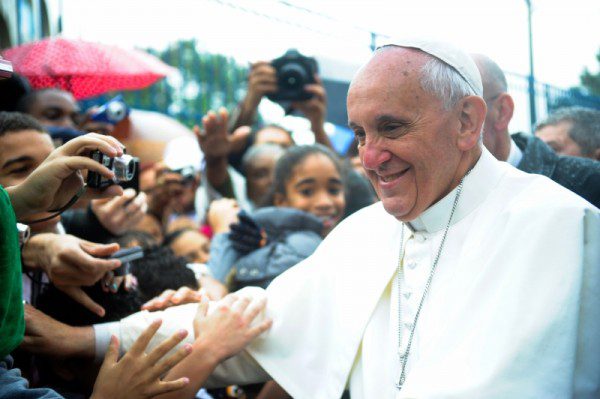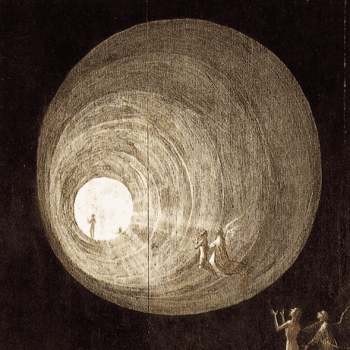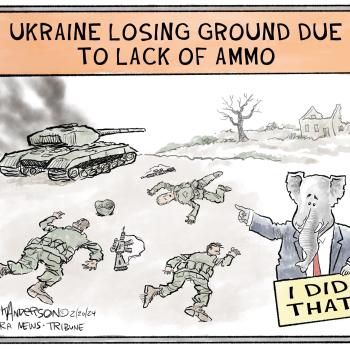
Their website states: “Todo o conteúdo deste site está publicado sob a Licença Creative Commons Atribuição 3.0 Brasil exceto quando especificado em contrário e nos conteúdos replicados de outras fontes.” (English translation: All content on this website is published under the Creative Commons Attribution 3.0 Brazil License unless specified otherwise and content replicated from other sources.)
It’s like some sort of rule.
The more wrong a thing is that people want to do, the meaner and madder they get when you tell them they can’t do it.
The truth is, everybody’s got somebody they feel righteous about hating, and a lot of people have whole groups of people that they feel righteous about killing. One group that falls into this category quite frequently is prisoners of any sort, but those convicted of heinous crimes most particularly.
The only way a person could try to explain away some of the things that convicted killers have done to earn their place on death row is if they’re a couple of cards short of a full deck. The jackets on some of these guys read, to quote Grosse Point Blank, like a demon’s resume.
That makes death row inmates the logical people to zero if you’re looking for someone to feel righteous about killing. There is no question that they “deserve killing.” In fact, there is no question that, if the only way to keep them away from the public is to kill them, then they need killing.
What isn’t so clear, at least to me, is why so many otherwise normal people have such an emotional investment in the concept of killing. Why are otherwise good people so eager to become executioners? What, exactly, is fueling the outrage over the pope saying that, since we have the option of locking these birds up and keeping them locked up until they die naturally, killing them is an inadmissible thing for Christians to do?
Isn’t that rather obvious?
It is not self-defense to kill someone, even someone with a demon’s resume, when they can’t fight back. If a person is in lockup, shackled when they step out of their cell, killing them is not necessary to provide for the public safety. There is no right or moral reason to kill them.
I sometimes hear people say that the death penalty is necessary to achieve justice. They seem to think that an execution would provide a kind of parity between these killers’ victims and what the killer did.
As if.
There is no way that we, as normal human beings, can ever provide parity with these people’s crimes. There is no eye for an eye that we want to provide for someone who has raped another human being to death, tortured someone for hours or days and then killed them and thrown their body in the dump as if it and they were trash. How do we get down to the level of people who enjoy inflicting agony, who bury innocents alive and pour acid on living flesh?
The answer is, we can’t. More to the point, we won’t.
In order to do that, we’d have to be them.
There is no parity with evil. There is no quid pro quo with monsters.
They are murderers. The question is, are we?
I have been more than a little flummoxed by people who are so deluded that they are attacking the Holy Father because he has told them that it is wrong to kill people who can’t fight back. It’s nonplussing to read their comments claiming that they are taking the moral and righteous high ground with their demands that the Holy Father back down and tell them that the unnecessary killing of a human being is, somehow or other, admisable behavior for Christians.
They base this on the fact that the Church has allowed the death penalty for centuries, that it has, in fact, exercised the death penalty itself. The focus of their outrage, at least the focus they will admit to, seems to be that the Church is static and cannot change.
While it is true that the basic teachings of the Church, the dogma of the faith, is unchanging, the way that those teachings apply to the particulars of changing human culture has and will continue to slowly change.
The same Church that forbade female infanticide and rape, that said that women were co-heirs to eternal life, is now confronted with the logical extension of these truths to women’s civil rights. The Church that taught that there was no slave or free, no male or female, that all are one in Christ Jesus, had to later deal with the logical extension of those truths and the recognition that no human being may be reduced to the level of chattel.
This latest development on the death penalty is neither sudden nor unexpected, and it in no way overturns Church teaching. It is, as are the other examples I gave, simply the logical extension of the basic teachings of the Gospels and the Church to a new reality.
A succession of popes going back decades has steadily narrowed the Church’s understanding of when or even if the death penalty is morally allowable. This narrowing has, from its start, been based on the fact that we no longer have any reason to kill prisoners in order to maintain the public safety. We can keep them locked up.
These popes weren’t changing the Church’s teaching about the sanctity of human life. They were simply following the logical and natural extension of it in light of changed reality.
The ability to keep the public safe without the death penalty exists in the poorer nations just as it does in the United States. Any stable government in today’s world has the wherewithal to provide for life in prison if they choose.
We the faithful are faced with learning to accept that there aren’t any people that it’s ok to kill. From conception to natural death, human life is sacred.
This does not mean that we are bound to allow ourselves to be slaughtered by those who carry a demon’s resume. Self-defense, including defense of the life of others, is not only an acceptable reason for using deadly force; it may, depending on the circumstance, be morally necessary.
However, executions of death row inmates are not self-defense. It is not necessary to kill them in order to provide for the public safety.
I know quite well that people get mean and unreasonable when you tell them that they can’t discriminate against someone they’ve decided belongs in the back of the bus, or, kill some other someone they think deserves killing.
It’s as if they cancel out the part of their mind that keeps them moral and replace it with primal blood lust. If there’s a way to reason with someone who’s in the grip of their primitive killer self, I haven’t found it.
It’s even more difficult to get through when they cloak this impulse in rage-soaked religious speak and self-righteous claims of a higher morality. They may not convince anyone but themselves, but they themselves are utterly convinced that the moral, right and christian thing is to kill.
That’s what I’m seeing in the defenders of killing people on death row. They seethe and fume about tradition and constant teaching, but what they are defending is killing someone who can’t fight back.
It really is that simple.
All these people who claim that they’d be happy to be the one to “throw the switch,” push the plunger on the hypodermic, pull the trigger on the gun … would they really?
Some of them, yes. I have no doubt.
But most of them, no. They’re just talking. Not only would they refuse to do the deed, they don’t want to serve on a death penalty jury. They wouldn’t want to hand down the sentence or strap the prisoner to the gurney or wash off his or her body after the execution.
It’s all a hypothetical to these people. But their big mouths and their big votes are why executions happen in this country.
Now, they’re angry with the pope for telling them the truth. The death penalty is inadmissible, because it’s the unnecessary killing of a human being.
Most of the people on death row are murderers.
The question is, are we?
For a more in-depth look at Catholic teaching and history on the issue of the death penalty, check out Mark Shea.
Also, Dave Armstrong’s excellent apologetics on the death penalty. Here, and here.

















